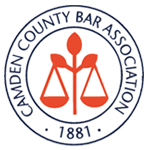 Injured employees that receive workers’ compensation benefits can be faced with subrogation proceedings after they think their claim is completed. This can happen if a third party has liability for the injury. When this happens, the insurance company may initiate their own claim to receive payment from the liable party, since they might be entitled to reimbursement.
Injured employees that receive workers’ compensation benefits can be faced with subrogation proceedings after they think their claim is completed. This can happen if a third party has liability for the injury. When this happens, the insurance company may initiate their own claim to receive payment from the liable party, since they might be entitled to reimbursement.
Workers’ Compensation in New Jersey
In New Jersey, workers’ compensation is a no-fault insurance. This means that no matter who or what caused the accident, if it was work-related, the insurance company will have to pay benefits. Furthermore, individuals working in NJ cannot sue their employers via civil action suits; this is referred to as “employer immunity.”
Employees have the option of making a workers’ compensation insurance claim, which will cover medical treatments, lost wages, and other specific benefits. In some cases, filing suit against third parties is an option. Oftentimes, these are product manufacturers. One reason to do so, if applicable, would be to recover compensation for pain and suffering, which workers’ compensation does not do.
If the employee wins the suit against the third party, their workers’ compensation insurance company has the right to subrogation to get their money back. The employee may be required to repay the workers’ compensation insurance company any benefits they had received, less attorney fees. This is intended to make certain injured employees do not receive double benefits.
More on Third Party Lawsuits
Insurers make every effort to recover claim monies, and may file civil suits against third parties even if the injured party does not. In New Jersey, if the plaintiff has not filed such a suit after one year, that insurer may commence the subrogation lawsuit in the employee’s name.
On the other hand, if the plaintiff did file, the insurer can put a lien against whatever money that plaintiff recovers. This is all detailed in the New Jersey Workers’ Compensation Law Title 34, Chapter 15-40.
An Example of How Subrogation Works
Subrogation can be a challenging topic, so an example may help explain how it works:
If Employee X is injured at work because a defective machine injured them, they can make a workers’ compensation claim. Employee X might receive benefits from the insurance company totaling $60,000 for medical bills, plus $20,000 for disability benefits (the latter is to replace lost wages from not being able to work). The insurer will want to get back that $80,000, and one way to do this is by going after the third party, the defective machine manufacturer.
If Employee X is pursuing a civil suit against that third party, this is when the insurer will place the lien. In these situations, this employee may want to work with an experienced Cherry Hill workers’ compensation lawyer to help them get a larger amount of damages in the civil suit, such as additional compensation for pain and suffering, which is not covered by workers’ compensation.
If the employee won $350,000, for example, there would be funds to reimburse the insurer and the attorney, with money left over. The plaintiff is obligated to pay off the lien first.
Injured workers should keep in mind the importance of filing a workers’ compensation claim. It is possible that injuries can show up after time has passed; also, if the injuries are permanent, insurance companies will not always provide benefits without a timely, formal claim.
Cherry Hill Workers’ Compensation Lawyers at Pietras Saracino Smith & Meeks LLP Can Help With Your Subrogation Case
Workplace injury claims can be complicated by subrogation, but a qualified Cherry Hill workers’ compensation lawyer at Pietras Saracino Smith & Meeks LLP can provide you with skilled legal representation. Call us at 856-522-4124 or complete an online form for a free consultation. We are based in Cherry Hill, NJ, and handle cases in the City of Camden and throughout South Jersey.






